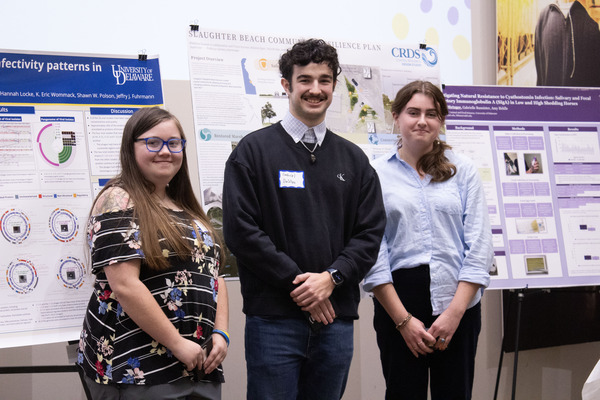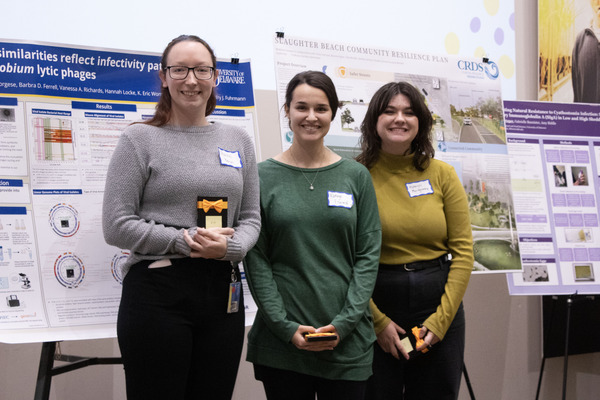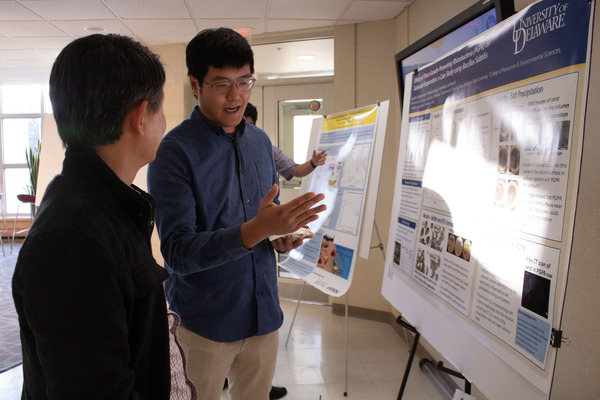
Category: Research
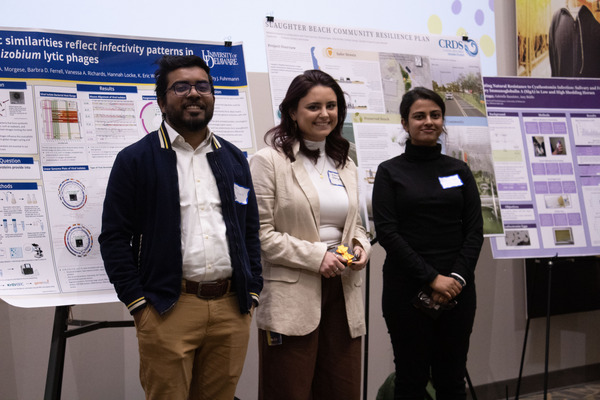
Research showcase
November 29, 2023 Written by Dante LaPenta | Photos by Jeremy Wayman
Nearly 40 graduate students, post-doctoral researchers and undergraduate students descended upon the Townsend Hall Commons to showcase their research and internship work at the Fall 2023 College of Agriculture and Natural Resources (CANR) Student Research Symposium. The students summarized their findings to judges and curious University of Delaware faculty and staff.
“In our college, we work in vastly different fields that are all essential to driving progress in agriculture and natural resources,” explained Tanya Gressley, the college’s associate dean for graduate programs. “This symposium provides us with a unique opportunity to simultaneously learn about all these efforts. We see how student research is moving us closer to solving some of the world’s most pressing challenges.”
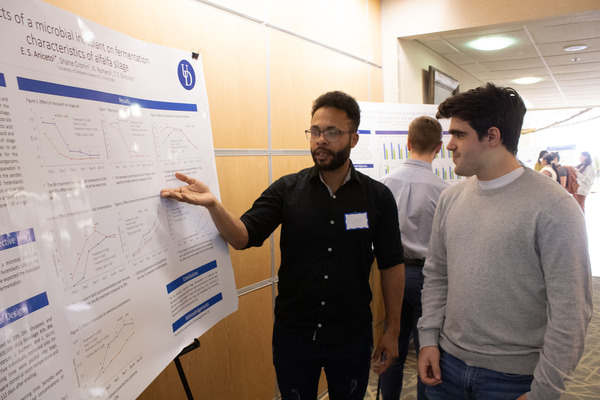
While the lion’s share of the presenters were graduate students, some ambitious undergraduates also stepped up to share their work. New in 2023, the college looked beyond the research arena, inviting students to share their internship projects. One student was landscape architecture major Madeline Downer. Working with collaborators in public policy and engineering, she developed a community resilience plan for the town of Slaughter Beach, Delaware.
“It’s important to get involved in collaborative research projects; I learned some new perspectives,” shared Downer. “I know how I approach a project as a landscape architect, but it was really great to hear from students [from other disciplines] — their perspective and expertise.”
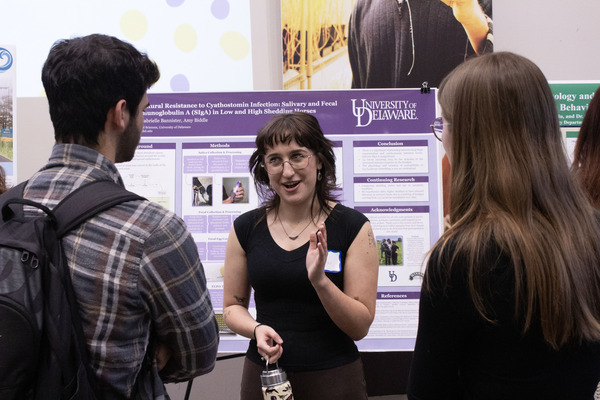
Whether grizzled veterans or lab greenhorns, students echoed similar statements on the value of getting involved in research as soon as possible — a calling card of the University of Delaware. Agricultural and resource economics graduate student Srabone Saha, who presented on fair wage from the lens of consumer empathy, saw professional and personal growth from the analytical challenges and time demands of her research.
“[Research] helps you to analyze things, look at things from a different perspective,” explained Saha. “That changes your perspective and that helps you to organize your schedule as well.”
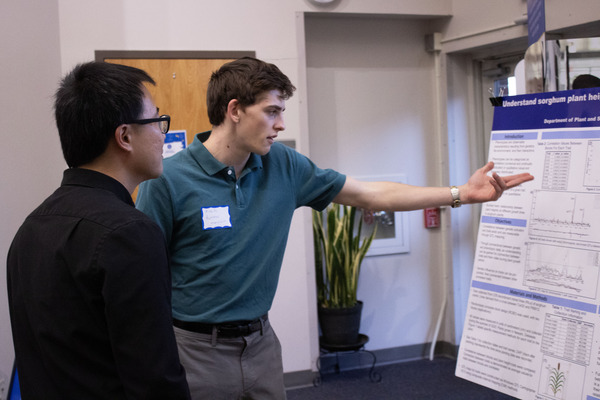
In addition to valuable professional skills, the chance to work on new research and with novel data brings a healthy dose of excitement to their work.
“When you're collecting brand new novel data in the lab, you're the only person that knows that specific thing about that piece of [in this case], biology, which is extremely cool,” added Rachel Keown, a Ph.D. candidate in plant and soil sciences.
Awardees
Undergraduate
First place: Claire Bernard – Identifying purple martin diet and its effect on nestling development
Second place: Gabriel DaSilva – Cannibalism in lesser mealworms
Third place: Madeline Downer – Community resilience plan for the town of Slaughter Beach, Delaware
Master’s
First place: Emily Morgese – Genomic and phenotypic diversity of 16 novel bradyrhizobium phages
Second place: Ahamed Zakaria – Estimating the impacts of per- and polyfluoroalkyl substances (PFAS) contamination on the housing market
Third place: Srabone Saha – Fair wage from the lens of consumer empathy
Ph.D.
First place: Rachel Keown – A single amino acid mutation in coliphage T7 DNA polymerase disrupts in vitro enzyme processivity and in vivo infection dynamics
Second place: Kathryn Ellwood – The layer hen model of human ovarian cancer
Third place: Ashleigh Montgomery – Targeting the destabilization of organic matter-bearing Fe and Mn oxides using indicator of reduction in soils (IRIS) films in coastal forests affected by sea-level rise
Postdoctoral researchers
First place: Jing Yan – Effects of plant growth-promoting rhizobacteria (PGPR) on saltwater evaporation: a case study using bacillus subtilis

